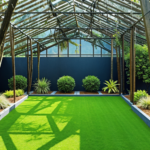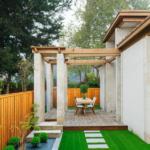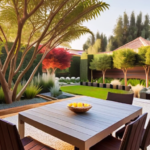Choosing a grass for your lawn is not always simple and easy. After all, you will want something that makes your house look nice and sets it apart from the other houses in the area.
Unfortunately, when selecting a sod, homeowners frequently don’t know where to begin. This is why, learning facts about the many different options that are available will assist you in selecting the kind of grass that is most suitable for your lawn.
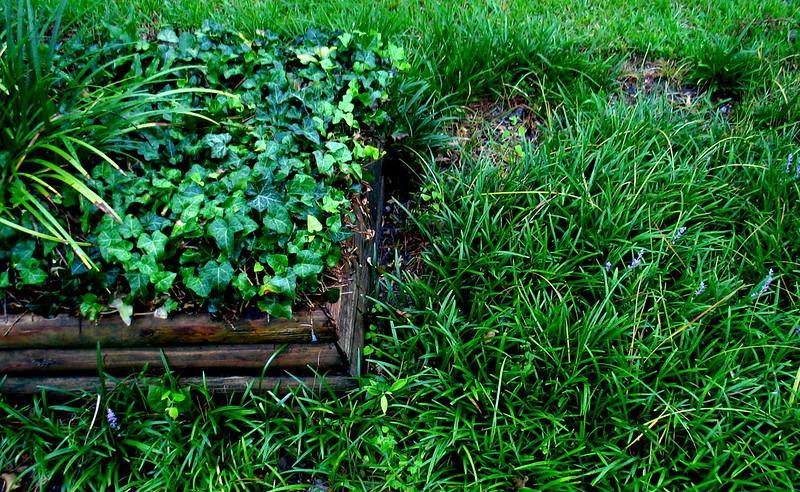
Bermuda grass is one of these options, especially in the southern and transition zones of the United States. Bermuda grass, also known as Cynodon dactylon, is a type of turf grass that requires very little care and is commonly cultivated from seeds. Your choice of seed will have a direct impact on the quality and variety of the lawn.
Homeowners and professionals in the lawn care industry adore Bermuda grass seed due to its adaptability to a wide variety of soil types. Different species of Bermuda grass often have a quick germination time which adds to its appeal. In addition, Bermuda grass can withstand extended periods of dryness and is usually considered one of the most desirable warm-season grasses available.
So, if you want to upgrade your lawn with Bermuda grass, this article is for you. We will also discuss the best options for golf greens, home laws, and hay.
All You Need To Know About Bermuda Grass
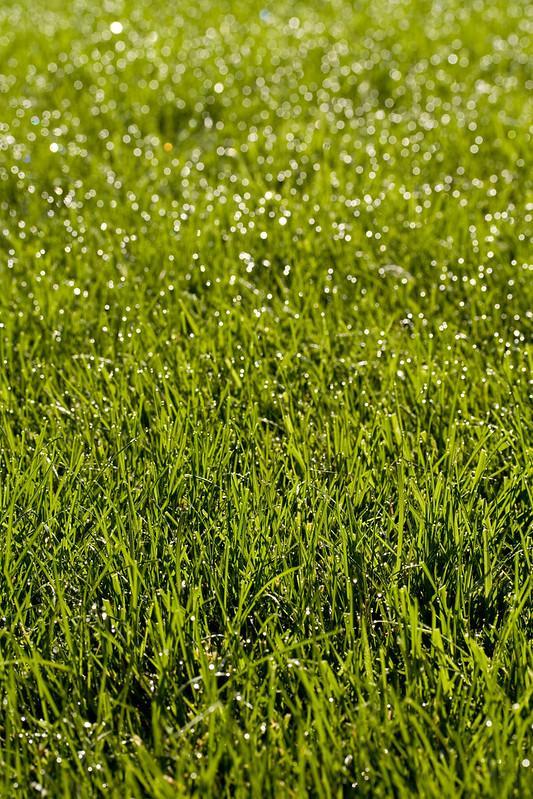
Bermudagrass is highly prized for its exceptional heat and drought resistance and potential to withhold intense use and quickly recover from damage. Bermuda grass is a perennial warm-season grass, which means that given the right conditions, it will grow each year again. Its active growth period spans from late spring through the hot summer months.
Its hardiness, adaptability, and creeping growth behavior elicit admiration or contempt from the homeowners, gardeners, and landscapers, who either plant it or find that it has invaded their property. It develops quickly from seed or sod into a dense turf capable of outcompeting weeds and highly tolerant of insect and disease pests.
Growing Bermuda Grass
Bermuda grass thrives in direct sunlight but can survive in partial shade. The best time to plant Bermuda grass is in the spring, when the temperatures have been consistently warm for at least a few weeks; in warmer regions, this is typically in April or March. Since it is not overly picky about the type of soil it grows in and can even endure salt spray, Bermuda grass is an excellent choice for coastal areas.
Caring For Bermuda Grass
Bermuda grass requires little maintenance, especially if you examine the lawn a few times a year. You can have the most vibrant, stunning lawn on the block by regularly mowing, aerating, watering, and feeding your Bermuda grass. It needs frequent mowing because it grows quickly, especially during rainy seasons.
RELATED: How to Plant Bermuda Grass | Bermuda Grass Growth Stages and Care
In Bermuda grass lawns, compaction can lead to restricted growth, weeds, and pest issues. So, keep your lawn adequately aerated. It will aid in loosening up compacted soil. Although Bermuda grass requires less water than some other grass types, you will still need to maintain a proper and adequate watering schedule.
General Classification Of Bermuda Grass
According to the findings of a group of researchers at Clemson University in South Carolina, more than 50 distinct varieties of Bermuda grass are cultivated in various parts of the world. These can be broken down into two broad groups: hybrid Bermuda grass and seeded Bermuda grass. Let’s discuss them in more detail.
Seeded Bermuda Grass
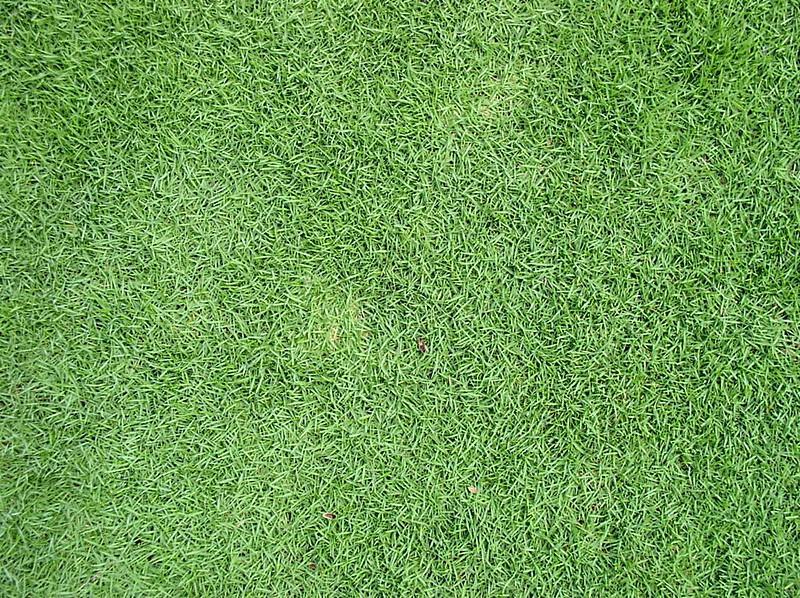
Seeded Bermuda grass refers to the various types of Bermuda grass that are commonly cultivated by sowing seeds. Grass develops seed heads, which, when matured, create sacs that contain pollen grains. Afterward, this pollen is distributed to other places by the insects, wind, and even other animals and humans who move on the grass.
Seeds of Bermuda can be sown at a rate that ranges between a quarter to one pound of seed per one thousand sq. ft. of the ground. Even though common Bermuda grass has been among the most widely grown grass seed for a considerable time, more and more improved and high-quality species have been introduced in recent years.
Seeded cultivars of Bermuda grass often have a finer leaf texture than unseeded variants. Not only does the turf produced by these grass forms have a deeper color, but it is also denser. Even when there is a lot of foot traffic on the turf, it can still survive.
In addition, seeded types of Bermuda grass require less upkeep than hybrid variations, making them the superior option for parks, etc.cYuma, Sahara, Blackjack, and Princess Bermuda are among the most famous varieties of seeded Bermuda grass.
Hybrid Bermuda Grass
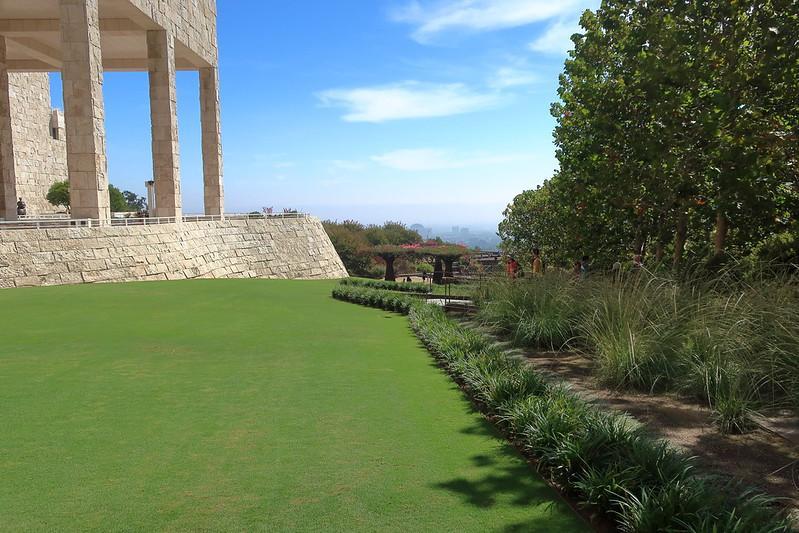
Even though the upgraded common Bermuda grass types are quite suitable for lawns, the hybrid Bermuda grasses are becoming popular due to the superior quality of the grass they produce. However, it is essential to note that for the hybrid varieties to flourish successfully, they require additional care and attention.
In addition, hybrid Bermuda grass requires intensive management strategies that include consistent fertilization and overseeding, as well as precise irrigation and drying methods. Do not make the mistake of trying to buy regular Bermuda grass seeds and scattering them across your yard if you find that your hybrid Bermuda lawn is not dense enough and you want to make it thicker. This will not work!
It is because if there are any shaded areas on your lawn, the grass will never be able to grow in the correct manner, and this strategy will not be effective. The Tifdwarf, Pee Dee, Santa Ana, Floratex, Tiflawn, Tifway II, and Tifway type varieties of Bermuda grass are all examples of hybrid varieties of this grass.
Since hybrid Bermuda grass doesn’t produce seeds, it must be grown via vegetative techniques like sod, plugs, or sprigging. Here is an explanation of each of these:
- Sprigging: the process of installing individual grass sprigs.
- Plugs: seedlings are raised in trays before being placed in the desired bedding.
- Sods: Patches of grass are removed from an existing turf and planted in the appropriate location.
RELATED: Planting, Mowing And Watering Bermuda Grass Lawn | How To Do It Right?
Types Of Bermuda Grass
The following is a list of some of the more common varieties of Bermuda grass:
Celebration Bermuda Grass
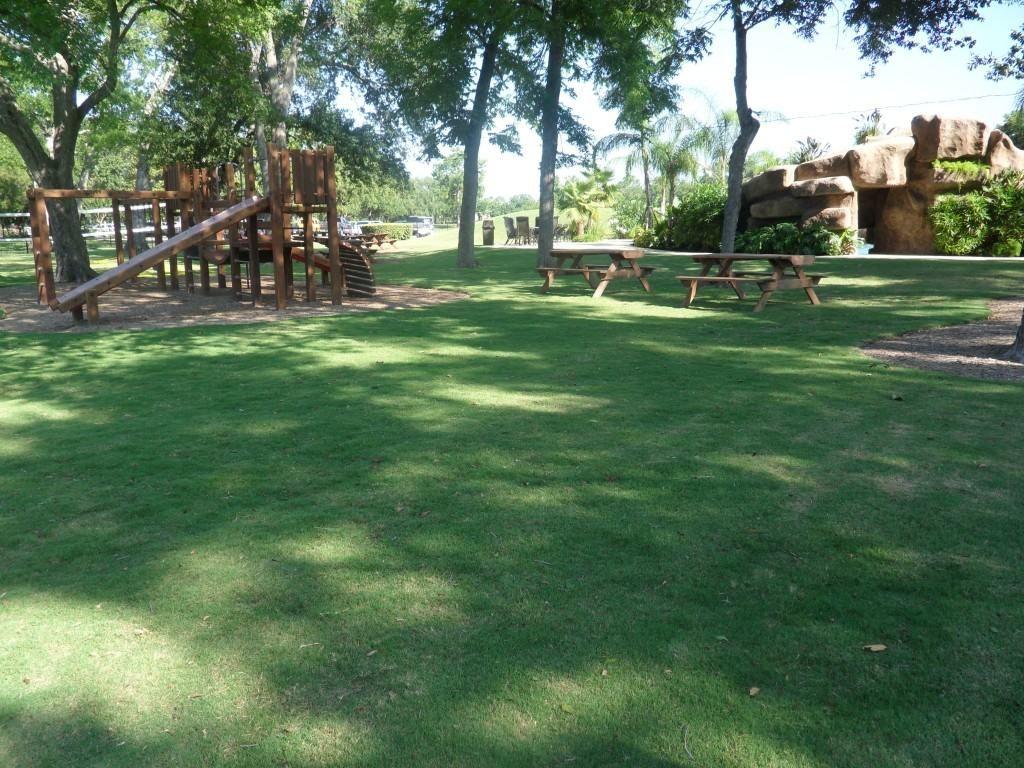
Celebration is a Bermuda grass type with a dark blue-green color and has been placed in first place in several research experiments conducted at universities. These studies focused on wear resistance and recovery, drought resistance and tolerance, and Bermuda grass’s ability to tolerate shade. Over the previous two decades, Celebration Bermuda grass has evolved into the new norm across the United States.
Specifiers, landscapers, golf course designers, sports turf managers, and homeowners can benefit from the remarkable performance that Celebration provides in various applications.
In comparison to other types of Bermuda grass, Celebration needs significantly less mowing and watering. In addition, it features compact runners, rhizomes, and deep roots, all of which contribute to its high sod strength.
Blackjack Bermuda Grass
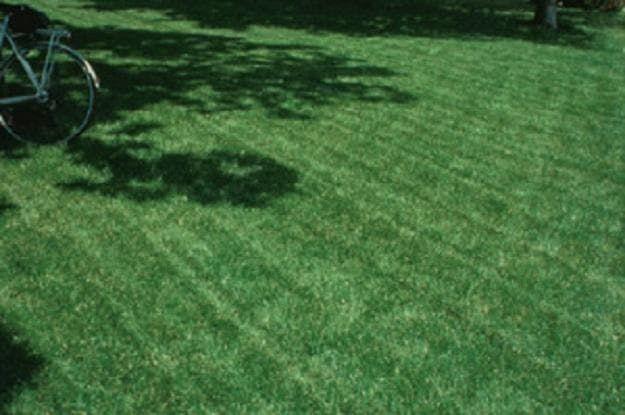
During the hottest summer months, this vigorous cultivar with fine-bladed leaves contributes color and density to any warm-season grass seed mixture. In addition, Blackjack demonstrates extraordinary cold tolerance even in regions that experience harsh winters. Consider putting Blackjack seeded Bermuda grass if you find that planting sprigs or plugs cause pain in your back. You’ll receive thick green grass all summer long.
It is considered one of the best grass seeds for areas with a lot of foot traffic because of its reputation for generating dense coverage. Also, unlike other types of Bermuda grass, it is one of the sorts that maintains its dark green color and its lively appearance throughout the warmer months of the year.
Ormond Bermuda Grass
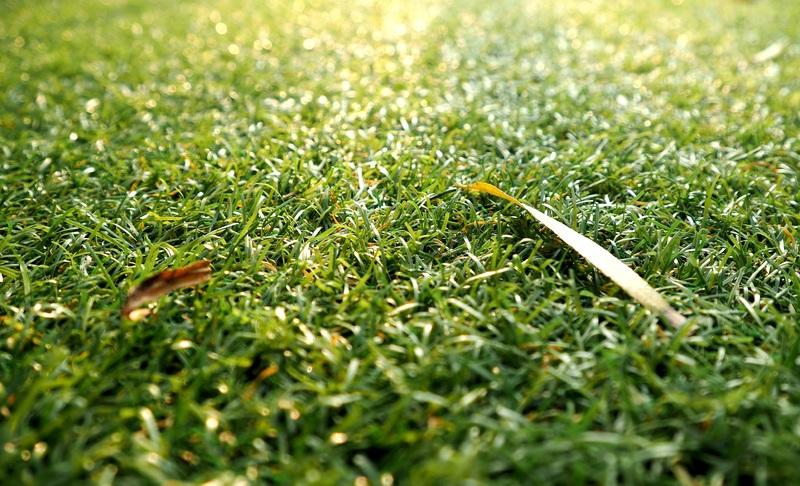
This kind of Bermuda grass may be distinguished from all others by its unusually long and exceptionally thin leaves and its stunning bluish-green color when viewed in natural light. When grown in conjunction with other hybrids, Ormond grass produces the most pleasing results. This variety of grass is most frequently seen in cricket fields and the tee boxes of golf courses. The grass does not grow as densely as its other relatives and has a lower tolerance for prolonged exposure to dry conditions.
However, it has an outstanding ability to withstand a wide variety of common leaf diseases. In addition, the Ormond variety stands out due to the exceptionally low amount of maintenance that it requires. However, if you live in an area with severe weather conditions, you should probably steer clear of this grass.
Latitude 36 Bermuda Grass
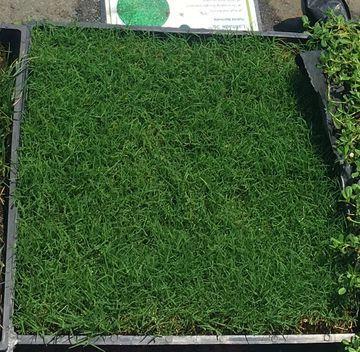
The renowned Oklahoma State University was responsible for the development of Latitude 36 Bermuda Grass, which the NTEP has given the highest quality rating possible.
It is resistant to spring dead spot diseases and can withstand the cold, the best out of all the available variants of Bermuda grass on the market. Latitude 36 has a high tolerance for foot traffic and an exceptional visual appeal. In addition to having a more delicate texture than North Bridge Bermuda, it possesses excellent tensile strength.
Latitude 36 Bermuda Grass is an excellent selection for use in residential and recreational sports as well as golf courses. Latitude-36 Due to its winter resilience and early spring regrowth, this grass extends the playing season. Additionally, its excellent sod thickness and fine texture offer an ideal game setup and a lovely appearance.
TifWay 419 Bermuda Grass
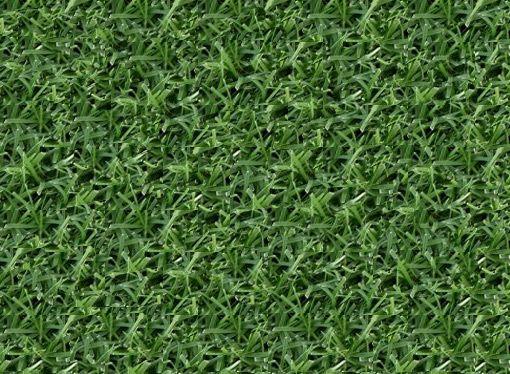
Tifway 419 is the hybrid variety of Bermudagrass that is utilized most frequently in the South for the construction of sports and golf courses. Cynodon dactylon and Cynodon transvaalensis germplasm were used to create the hybrid bermudagrass Tifway 419. It has a fine texture and a dark green color and is the ideal grass for fairways, tees, athletic fields, and home lawns since it is resistant to many lawn diseases.
Tifway 419 can withstand more significant wear and is more resistant to weed invasion than other varieties because of its highly dense top growth. Tifway 419 is a beautiful cushion for absorbing impact when trimmed to a size between 0.5 to 0.75 inches. During the winter months, the grass is more resistant to damage when it is dormant.
TifSport Bermuda Grass
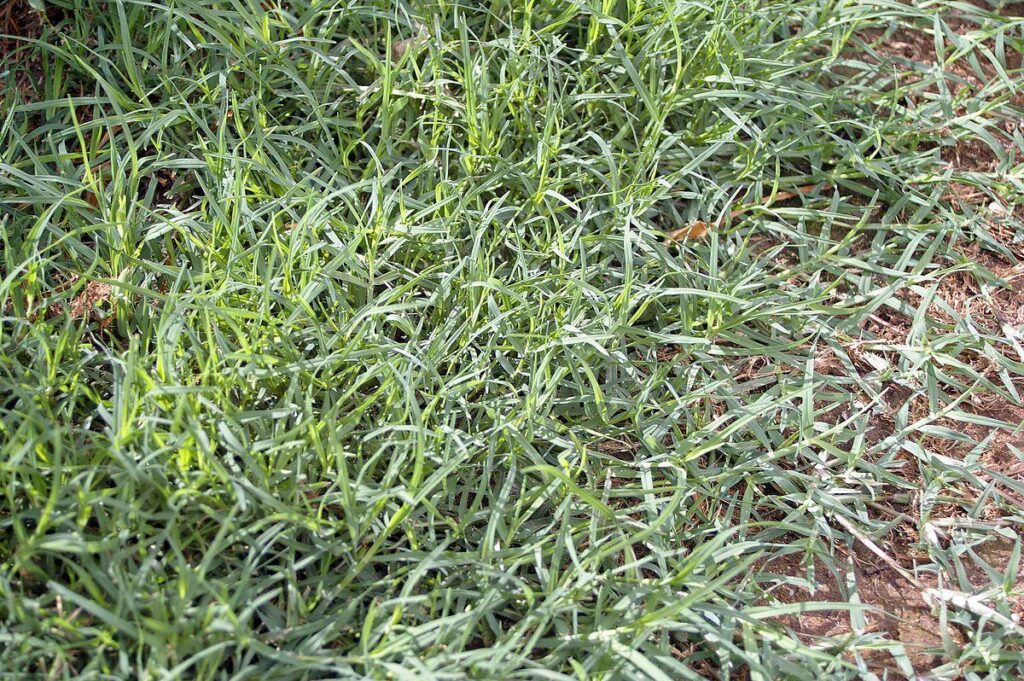
TifSport is a superior choice for athletic fields, golf courses, lawns, and landscaping because its sod density is three points higher than that of comparable Bermuda grasses. In addition, TifSport Bermuda has good lateral growth, solid strength, and density, all of which contribute to the fact that it is very traffic tolerant. These characteristics also lead to rapid grow-in and repair, improved playing conditions, and enhanced resistance to divot injuries in the sports of golf, football, and baseball.
The grass blades of TifSport are deep emerald green, while the stolons of the grass are green with purplish highlights around the nodes. It is well-known for its capacity to tolerate close mowing, as well as for its thickness, hardness, resistance to southern mole cricket, and notably its wear tolerance.
NorthBridge Bermuda Grass
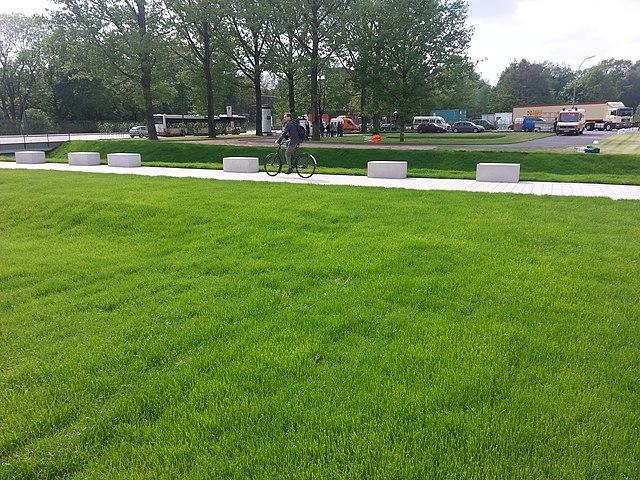
The most recent addition to the Oklahoma State Selection program, NorthBridge Bermuda grass, is characterized by a fine texture, increased tolerance to cold temperatures, rapid greening in the spring, and exceptional sod strength. The NorthBridge Bermuda grass demonstrates excellent potential as a cold-resistant variety of Bermuda grass for the transition zone. Which is ideal for residential, sports, and golf applications.
NorthBridge is perfectly suited for usage on golf course fairways, tee boxes, and greens surrounding. As well as on heavily used and intensely managed sports fields. It is also appropriate for use on “showcase” lawns. Expected to be of the highest quality and will be managed intensely.
TifTuf Bermuda Grass
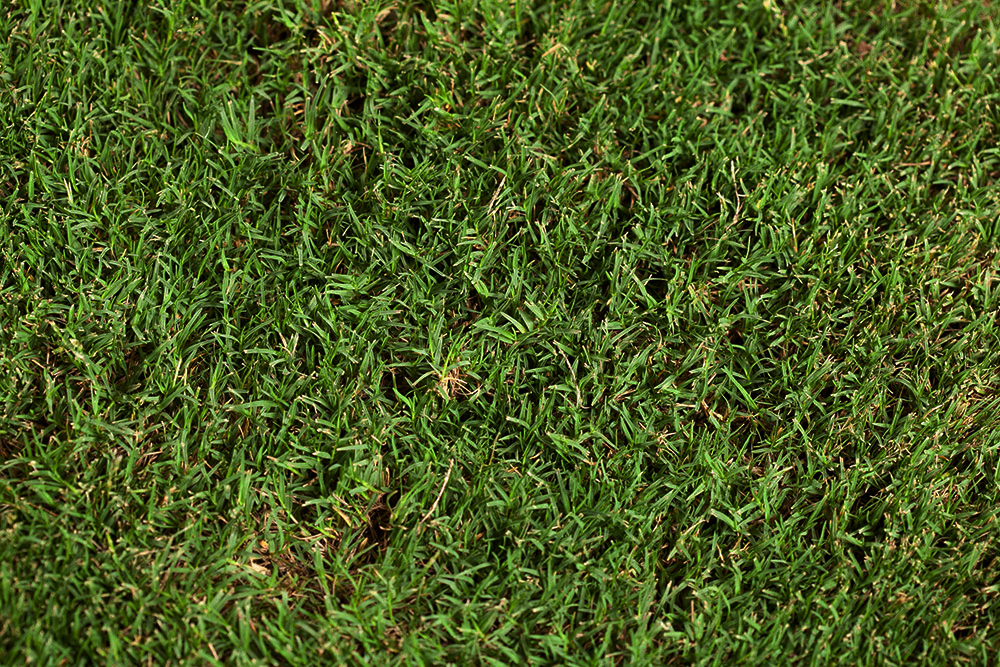
TifTuf Bermuda grass is replacing Tifway (419) as the new typical turfgrass in residential and commercial landscapes. As well as use in other heavy traffic locations like parks & sports fields, due to its drought tolerance. In addition, TifTuf can withstand high-impact sports like football, soccer, baseball, and golf without any issues. Because it is more resilient to traffic wear and tear than any other Bermuda.
It can withstand drought better than Tifway 419, using 38% less water. It’s also not a problem if you have mature trees in your yard. The lovely dark green color persists into the fall and emerges early in spring. It offers excellent wear resistance and recovery, making it ideal for homes with children and pets.
RELATED: How To Get Bermuda Grass To Spread Fast | Bermuda Grass Lawn Care Tips
Frequently Asked Questions
What type of Bermuda grass is best?
Tifway is regarded as the greatest all-around Bermuda grass option for premium lawns, sports fields, and golf course fairways. Other great all-rounder Bermuda grass alternatives include TifTuf, TifSports, and Latitude 36 Bermuda grass.
What is the most shade-tolerant Bermuda grass?
TifGrand Bermuda Grass is the most shade-tolerant variety of Bermuda grass. Since it is a specific design to endure shade levels of up to 50 percent. In addition, compared to most other types of Bermuda grass, it greens up earlier in the spring.
What is the difference between TiffTuf and Tifway Bermuda sod?
TifTuf hibernates during the winter but provides exceptional spring green-up and fall color retention. In addition, TifTuf can grow in both full sun and shade, and compared to Tifway, it can tolerate more shade.
What is the softest Bermuda grass?
Green hybrid light It is very soft to touch Bermuda grass it is a combination of Cynodon dactylon and trasvaalensis as a development. Since many varieties of Bermuda grass are hard and uncomfortable to walk on, make sure you choose this hybrid.
Is TifTuf Bermuda invasive?
In addition to maintaining its rich natural color longer under drought stress, TifTuf Bermuda boasts a deeper green color than other Bermuda grass varieties. Unfortunately, TifTuf is a highly invasive grass species that needs mowing frequently.
Sources for Further Reading
- Bermuda grass Varieties: Seed, Sod, or Otherwise – University of Arizona Cooperative Extension Service
2. Bermuda grass: Species & Varieties – University of Georgia Extension Service
3. Bermuda grass management guidelines – Agriculture and Natural Resources, University of California
We hope you learned something from this article, here are other articles that you can learn from:
When And How To Fertilize Your Vegetable Garden For The Best Results?
Solved! How Long Do Fertilizers Take To Work? | Liquid Vs. Granular Fertilizer
Lawn Edging Techniques For A Professional Finish | A Comprehensive Guide




